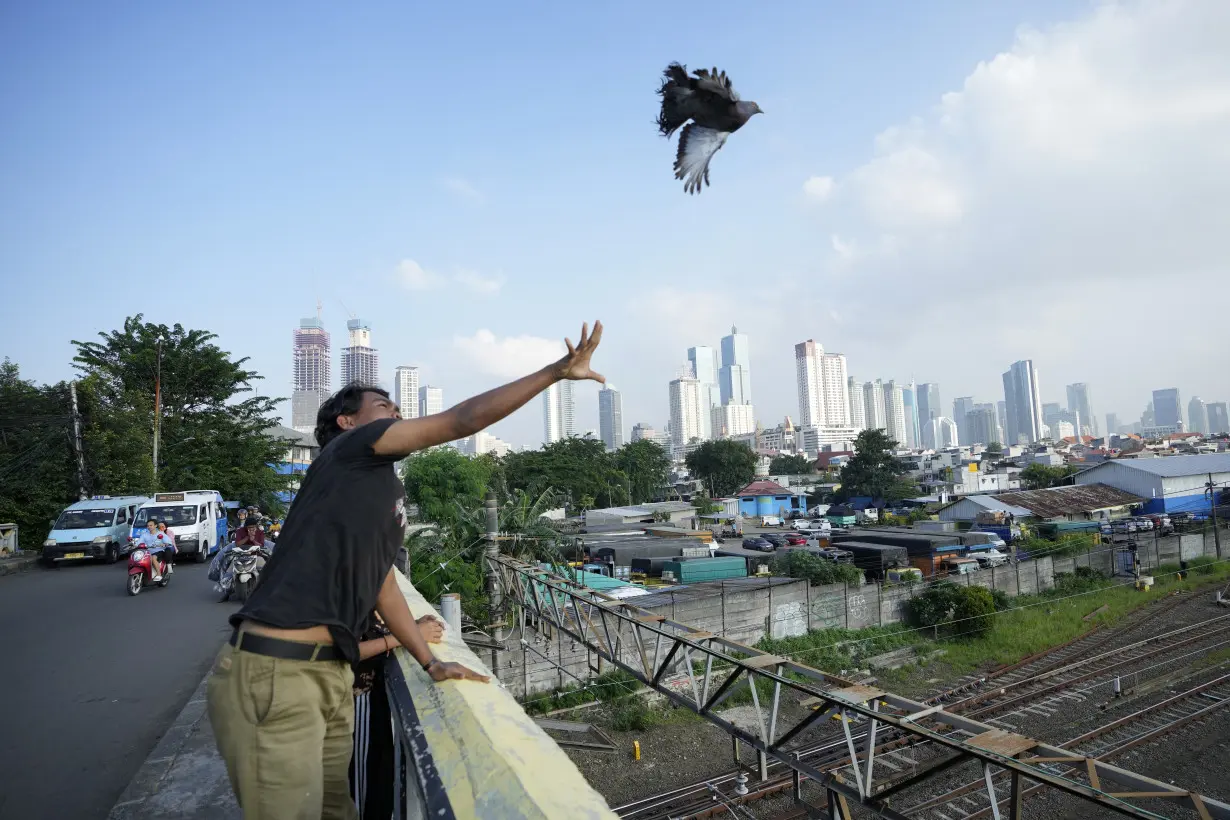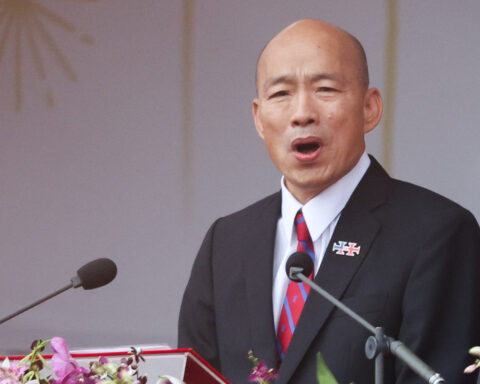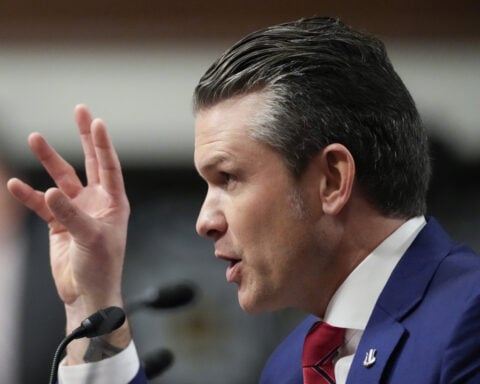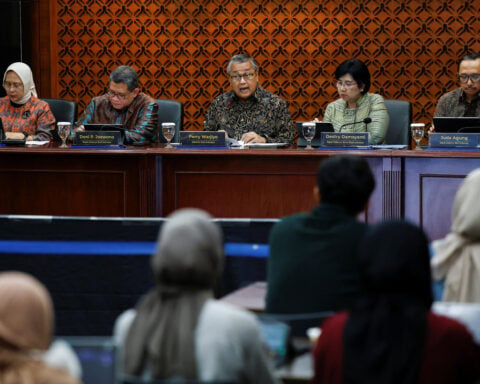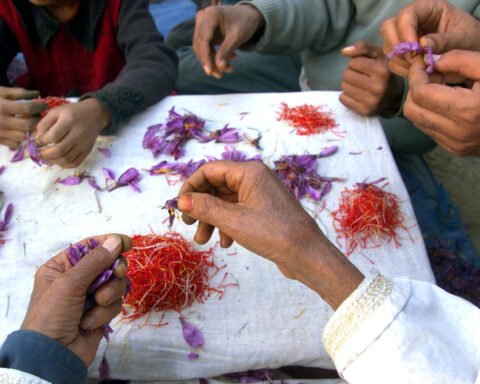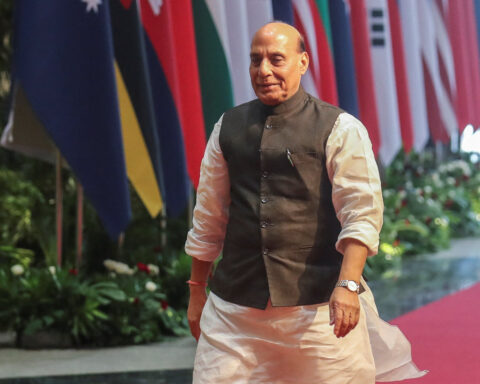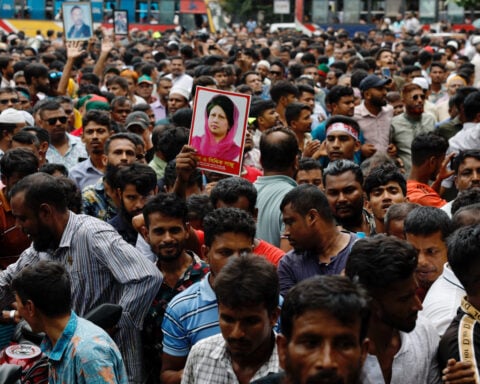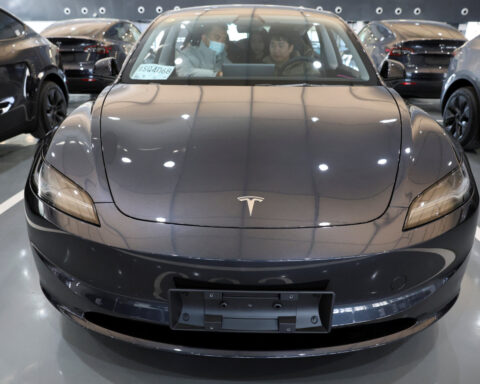JAKARTA, Indonesia (AP) — Indonesia, the world’s third-largest democracy, will open its polls on Wednesday to nearly 205 million eligible voters in presidential and legislative elections, the fifth since Southeast Asia’s largest economy began democratic reforms in 1998.
The sprawling archipelago of 17,000 islands and more than 270 million people from about 1,300 ethnic groups is a bastion of democracy in Southeast Asia, a diverse and economically vibrant region of authoritarian regimes, police states and nascent democracies.
The presidential election will determine who will succeed President Joko Widodo, popularly known as Jokowi, who is serving his second and final term.
The election is shaping up to be a three-way race among current Defense Minister Prabowo Subianto and two former governors, Anies Baswedan and Ganjar Pranowo. If none of the candidates secures more than 50% of the votes in the first round, a runoff between the top two is scheduled for June 26.
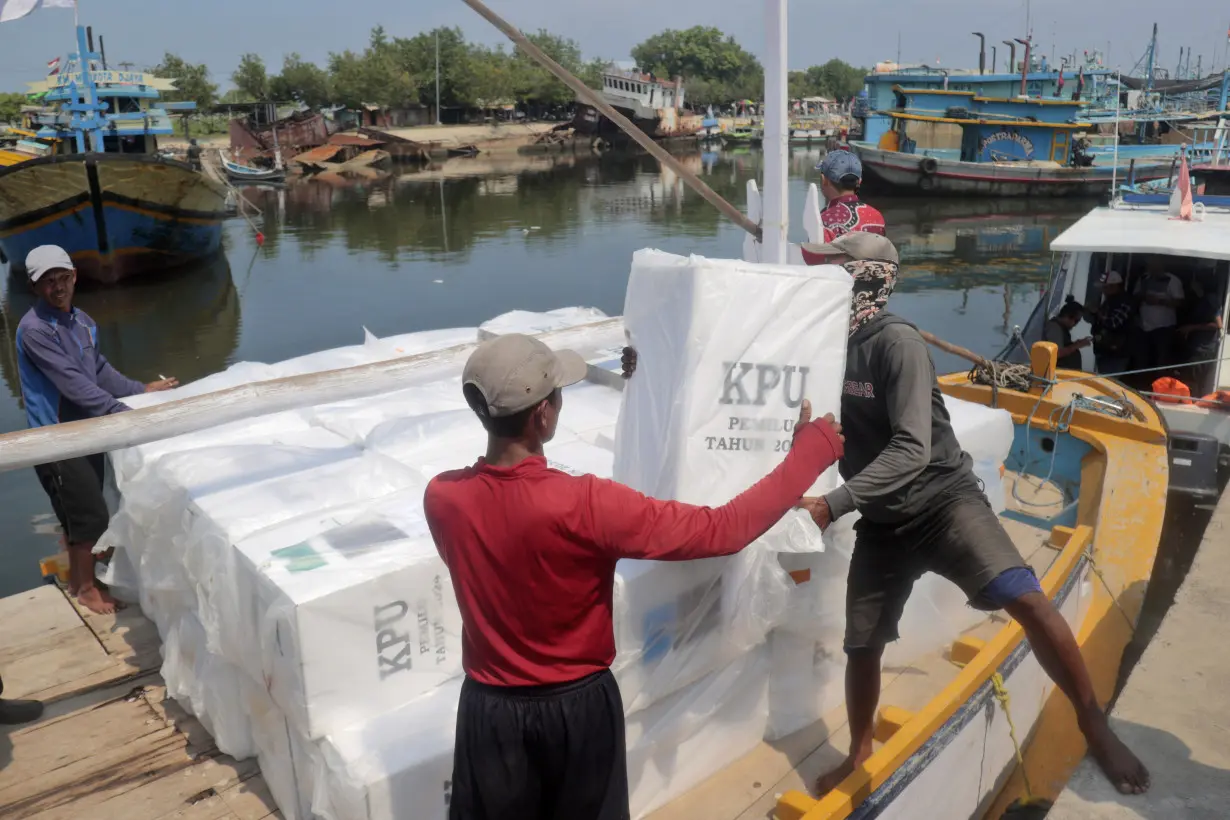
Tens of thousands of candidates across the world’s largest archipelago nation are battling for some 20,000 national, provincial and district parliamentary positions. About 10,000 candidates from 18 political parties are contesting for spots in the 580-seat national parliament alone.
Political parties are required to have a woman in at least every third position in their party list, and parties need at least 4% of votes across the country to qualify for representation in the national parliament.
A party or coalition of parties needs to control at least 20% of seats in national parliament to nominate a presidential candidate.
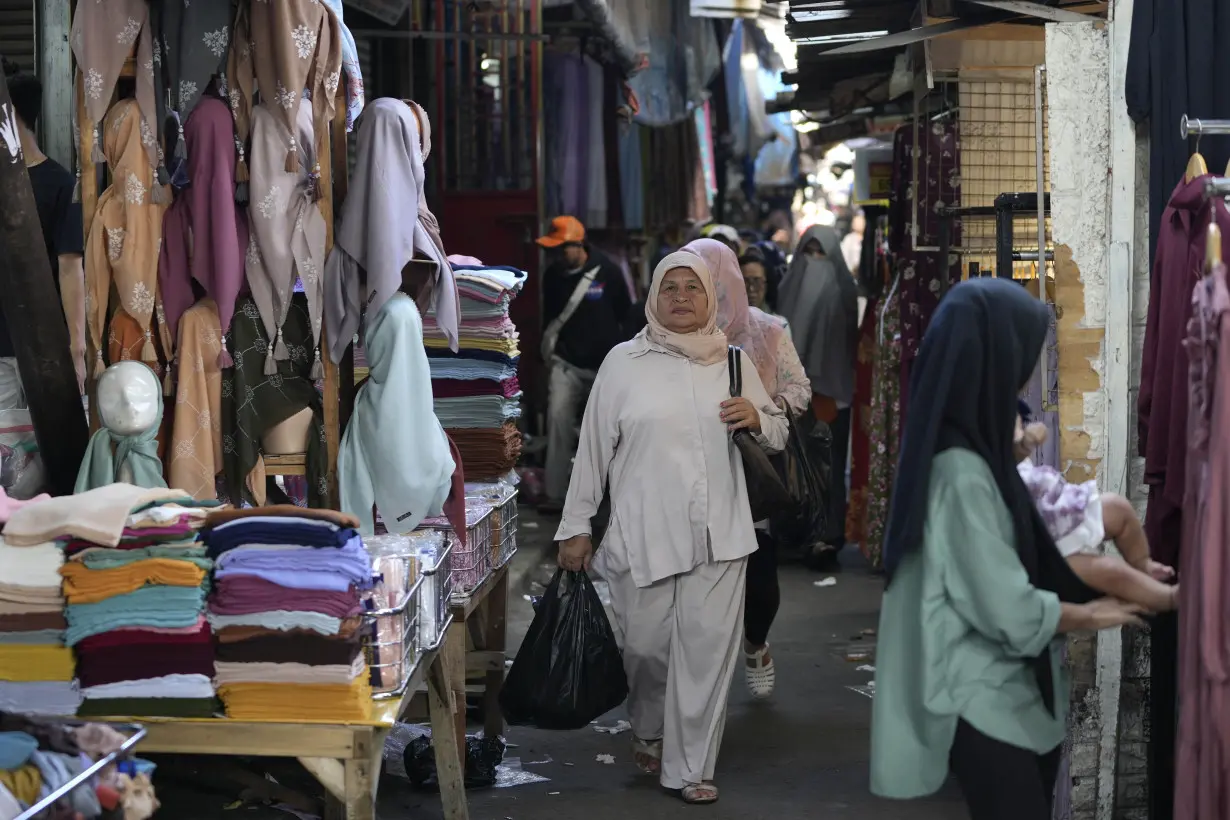
Any Indonesian citizen who is 17 or older can vote, but members of the police and military are banned from voting, though their families can.
In this year's election, about 52% of registered voters are under the age of 40. A third of them are under the age of 30, making the “youth vote” important, and candidates have been making a concerted effort to target them through social media campaigns.
Voters can cast their ballots at over 820,000 polling stations across Indonesia’s three time zones. Polls will open at 7:00 a.m. and close at 1:00 p.m. and will be overseen by about 7 million election officials and independent workers. Indonesians living overseas have been casting votes since Feb. 5 at 3,000 polling stations in many countries or by mail.
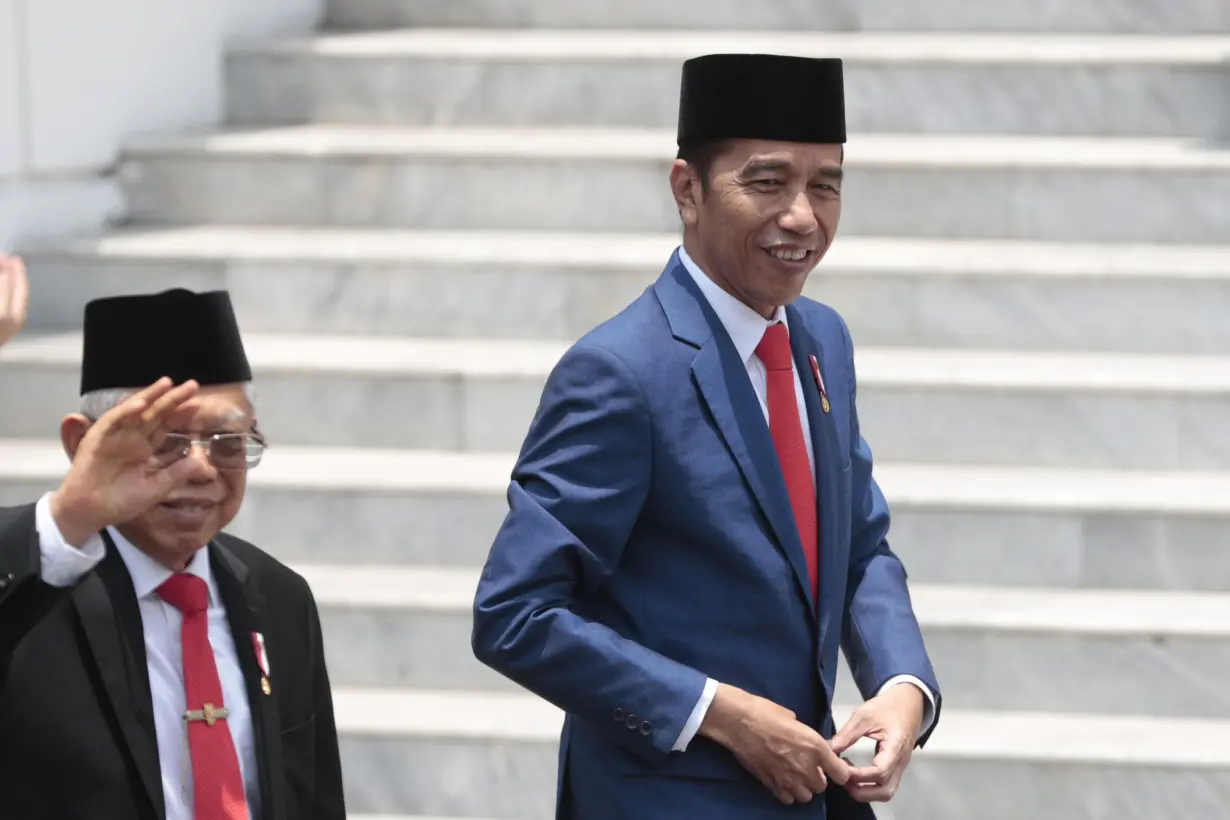
Once entering a voting booth, a voter must deal with five ballots at once and choose one of the three pairs of presidential and vice presidential hopefuls, as well as representatives at the national, provincial, regional, regency and city levels, making it the most complex election in the world.
Votes are counted in public at polling stations.
Located between the Indian and Pacific oceans, Indonesia is the world’s largest island chain and spans an equivalent distance from New York to London. It is the world's fourth most populous country, with a rich cultural heritage and diverse natural resources. Nearly 90% of Indonesia's 277 million people are Muslims, making it the world's largest Muslim-majority nation.
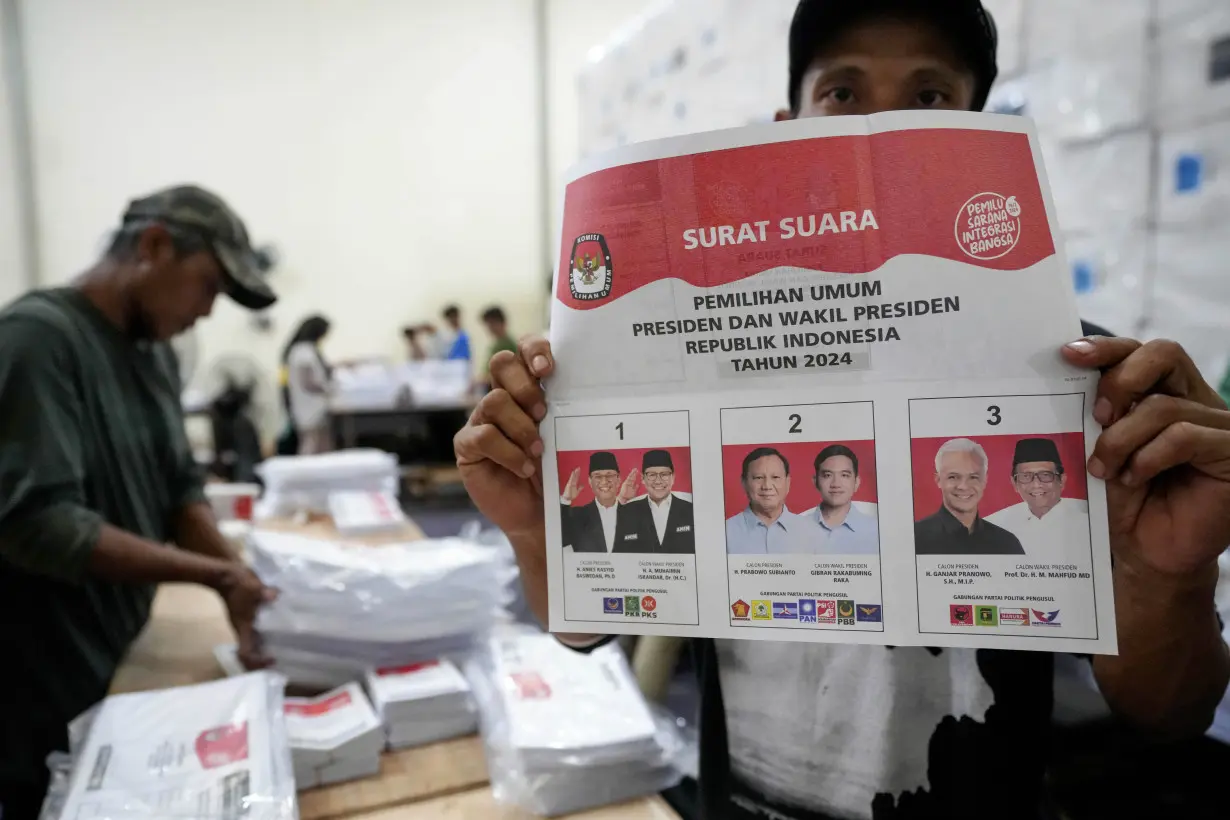
Indonesia’s strategic location also gives it geopolitical significance, and as a member of several international organizations, including the United Nations, G20 and ASEAN, it plays a key role in regional and global affairs. Indonesia’s political stability plays a central role in maintaining regional peace and stability.
There is unease in civil society that Widodo wants to retain influence even after leaving office. Activists, students and university lecturers in recent days have expressed concern over democratic standards in Indonesia, citing unethical, corrupt and nepotistic practices and worsening quality of life in the country.
Widodo faces mounting criticism over his lack of neutrality after he threw his support behind frontrunner Subianto, who has picked Widodo’s son as his running mate. Widodo has distanced himself from the governing Indonesian Democratic Party of Struggle, under whose banner he ran in 2014 and 2019, since the party nominated Ganjar Pranowo and former top security minister in his cabinet, Mohammad Mahfud, as presidential and vice presidential candidates.
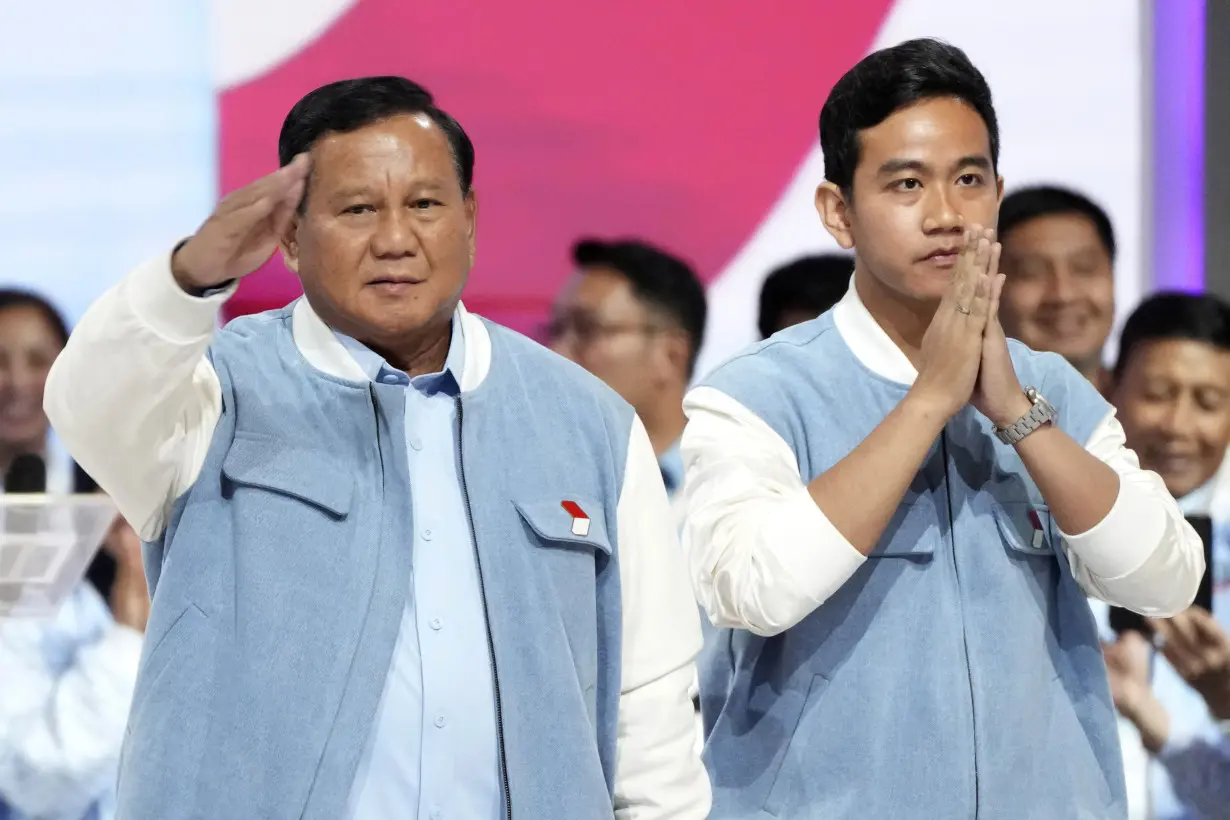
With three presidential candidates running, the electoral rules require a candidate to win at least 50% of the national vote and at least 20% of the vote in each province to avoid a runoff.
Various polling institutions have forecast that Subianto and his vice presidential candidate, Gibran Rakabuming Raka, will likely win the first round. But whether they will get enough votes to win the election outright or be forced into a runoff is still unclear as observers say undecided voters will have a significant impact on results. About one-fifth of Indonesians fell in this category in late December surveys.
The new president will be inaugurated on Oct. 20 and will have to appoint a Cabinet within two weeks.
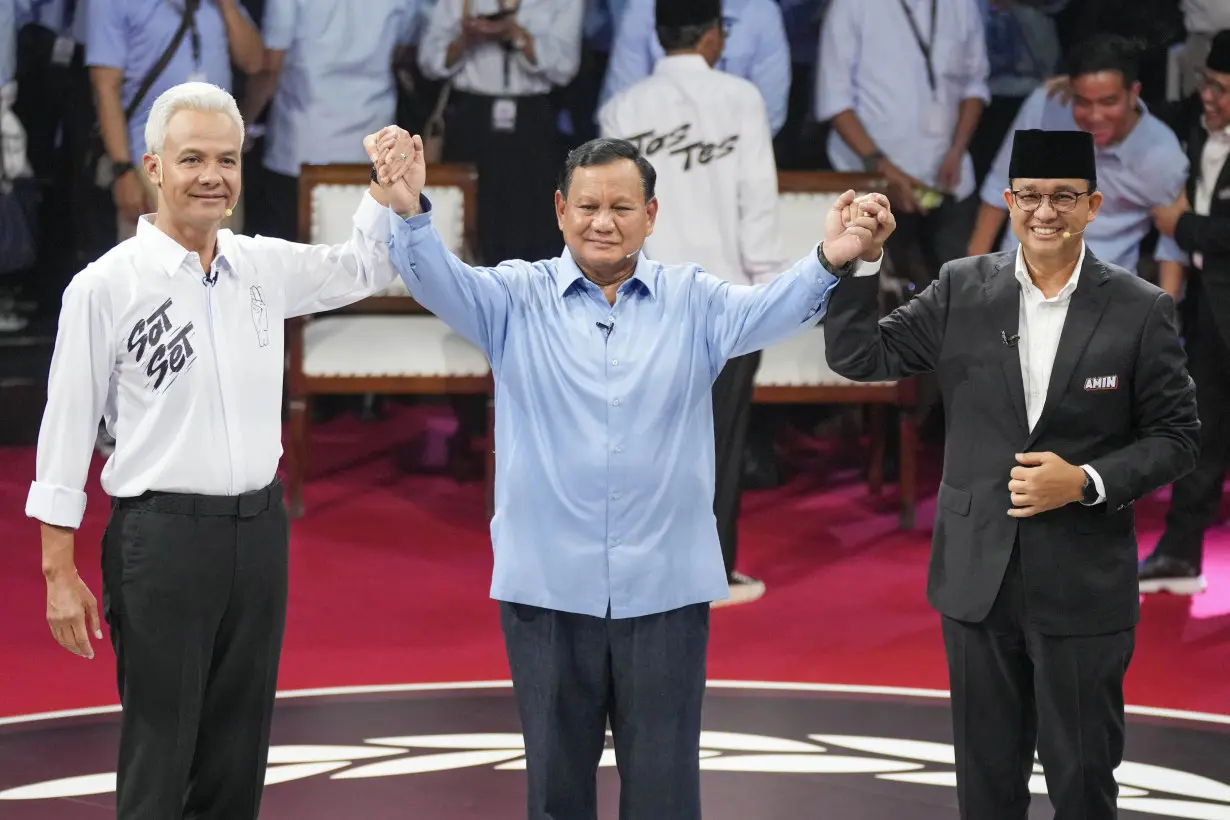
The official vote-counting process, which is lengthy and laborious, may take up to 35 days to be completed, the maximum time regulated by the Elections Law.
But the public can expect numerous early vote count results based on sampling, as registered private polling and survey groups will deploy thousands of volunteers and staff to polling stations nationwide.
The early results, widely known as a “quick count,” are considered a reliable indicator of what the official count will show when all votes are tallied in about a month.
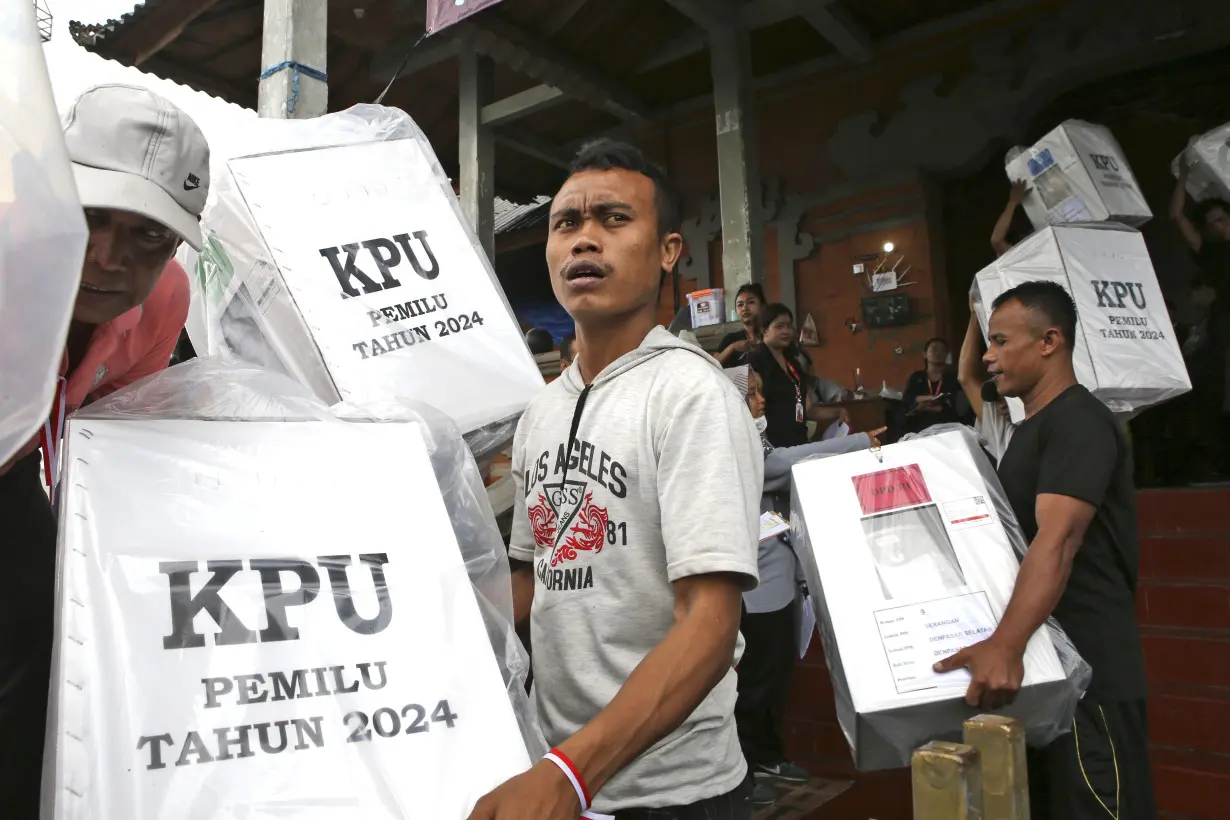
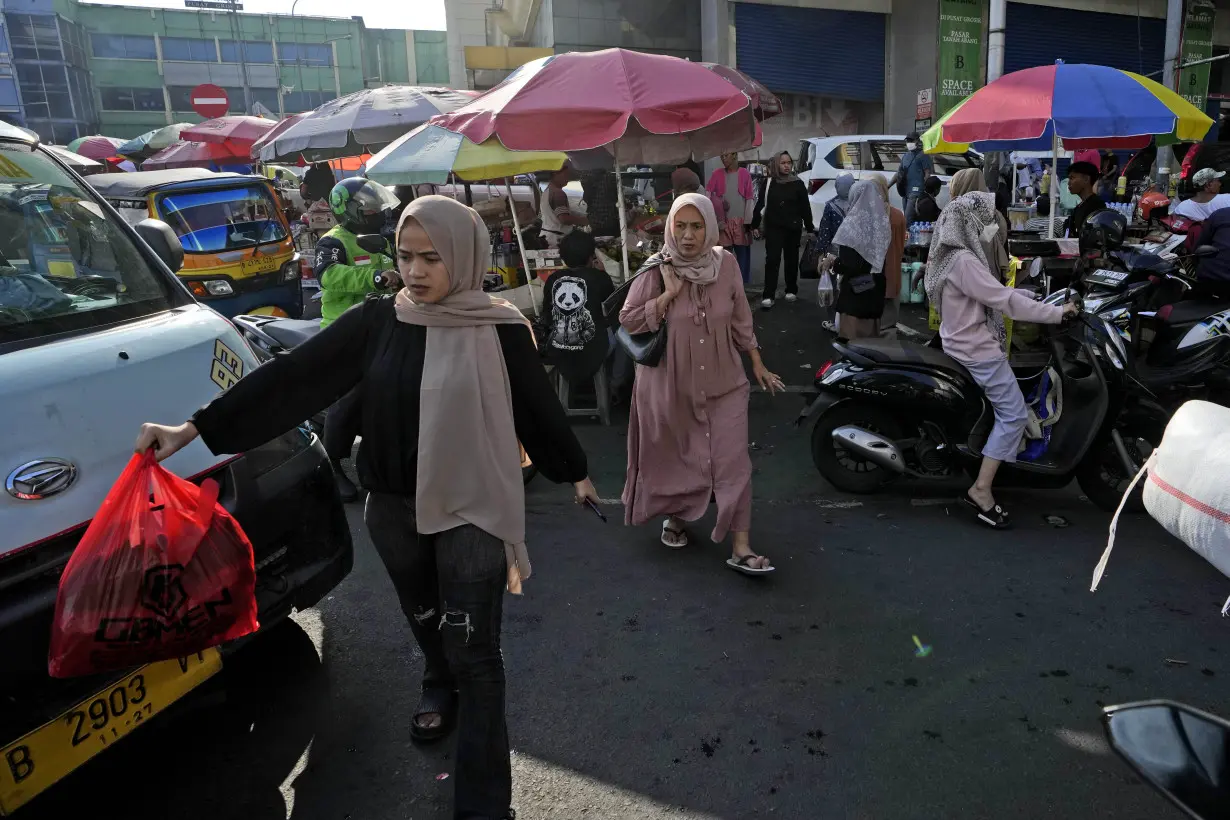

 Supreme Court will hear Texas anti-pornography law that challengers say violates free-speech rights
Supreme Court will hear Texas anti-pornography law that challengers say violates free-speech rights
 Yellen defends COVID spending, says it saved millions from losing jobs
Yellen defends COVID spending, says it saved millions from losing jobs
 Futures flat on caution ahead of bank earnings, key inflation data
Futures flat on caution ahead of bank earnings, key inflation data
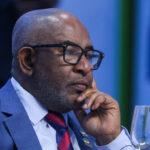 Comoros ruling party wins parliamentary elections, opposition rejects results
Comoros ruling party wins parliamentary elections, opposition rejects results
 Sweden seeks to change constitution to be able to revoke citizenships
Sweden seeks to change constitution to be able to revoke citizenships
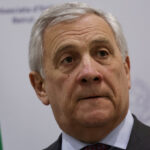 Italy protests to Venezuela over arrest of NGO worker
Italy protests to Venezuela over arrest of NGO worker
 Coors Light is changing its name
Coors Light is changing its name
 Tiger Woods’ son Charlie chuckles while watching his dad suffer heavy defeat in TGL debut
Tiger Woods’ son Charlie chuckles while watching his dad suffer heavy defeat in TGL debut
 Bayern Munich signs US youngster Bajung Darboe from LAFC
Bayern Munich signs US youngster Bajung Darboe from LAFC
